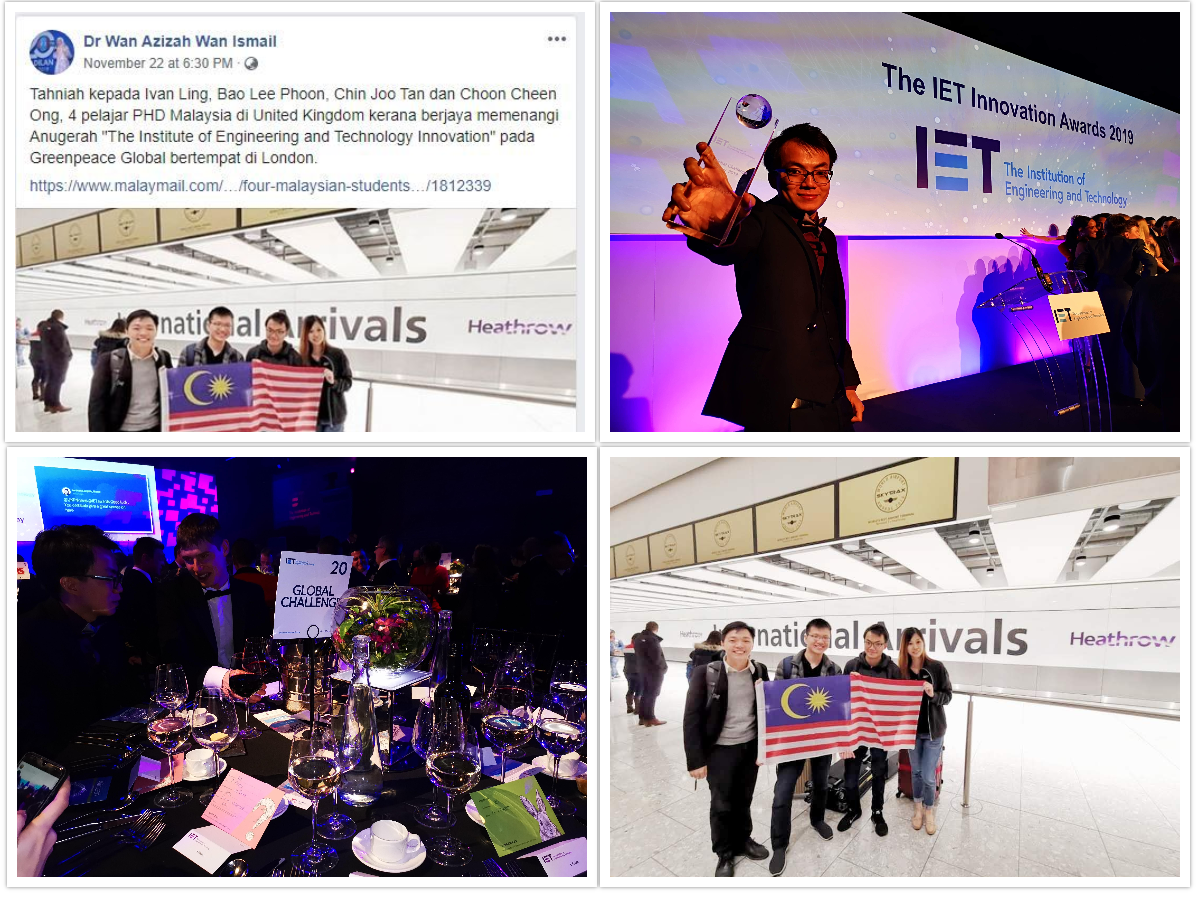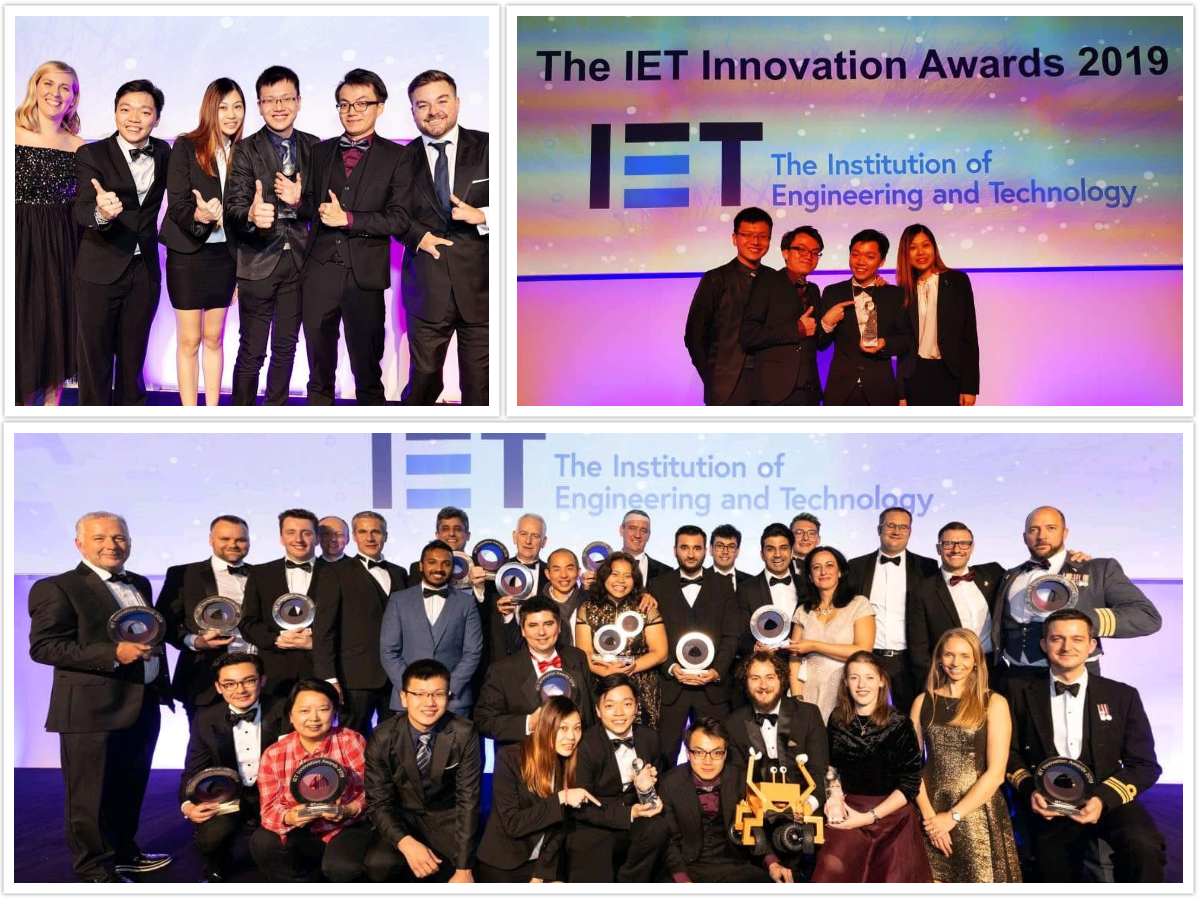By and large, the world has staked its future on technology. Evidently, the contours of tomorrow's world are already showing up—moving innovation and new technologies to the centre stage.
Among the many challenges that technology has been tasked to solve is the world's unfettered global consumption. To this end, a wide range of new solutions is emerging along a spectrum that spans from social businesses supported by digital at one end to nanotechnology at the other.
Ong Chong Cheen, 27, a PhD student in Applied Science at UTP, says, “For Asians, the demand for rice and beans are high. As a result, supermarkets use a lot of plastics to package the commodities."

According to Ong, the sheer volume of plastic used by supermarkets for packaging is placing an acute strain on the environment. As large chain stores are the main distributors of goods, forgoing plastic can drastically reduce plastic production and consumption to safeguard the future of wildlife, our children and our planet.
He says, “We all met at the Olympiad Nanotechnology Malaysia 2018 competition held by the National Nanotechnology Centre. I won a gold medal at the competition. After the competition, we have been in touch and contemplated with the idea of doing research together. At the time, Tan Chin Joo was already a member of The Institution of Engineering and Technology (IET). This encouraged us to join the society."
Subsequently, the team decided to take part in the institution's famed global challenge. For 2019, the category was endorsed by Greenpeace, where the challenge asked of ideas for reusable packaging designs or new approaches for supermarkets to dramatically reduce their need for plastic packaging.
Following this, Ong and three other PhD students have joined forces in developing a new approach, called PICAS block, which provides an alternative for packing dried, loose food products by using carrageenan and starch to create dissolvable food blocks, in the hope of significantly reducing the amount of plastic waste from supermarkets.
According to Ong, the team's invention was inspired by a local favourite food—tempeh. Forming a team called NanoMalaysia, Ong, alongside PhD students Ivan Ling, Pauline Phoon Bao Lee, Tan Chin Joo recently won the Greenpeace-supported IET Global Challenge award.
In short, the challenge called for reusable packaging design ideas or new approaches for British supermarkets to dramatically reduce their need for plastic packaging. Apart from receiving £500 cash prize, the team was also given an all-expenses-paid trip to London to attend IET's prestigious Innovation Awards ceremony on the 15th of November 2019.

Ong says, “This is like a collaboration between three universities, Univerisit Teknologi PETRONAS, University of Malaya and University of Southampton Malaysia."
"We tested different binding materials, including gelatine, sugar, alginate, etc. But we settled for a combination of starch as a binder and carrageenan as a protective layer, as it provides the best performance after considering the trade-offs,"
"It took us about nine months since the competition began to get everything prepared. When we first read the problem statement, we had no idea how to start."
"Then, we came up with this idea of packaging beans in blocks. These blocks can be sold alongside fruits, and can be placed directly into shopping baskets without needing an additional bag," explains Ong.
The innovation, in the simplest terms, aims to herald a new era where single use plastic that's harmful to the environment is no longer poses a threat to the environment. What sets it apart in crucial ways was the potential to remake how supermarkets and retailers package their goods.
Next, Ong says that the team hopes to meet the Ministry of Energy, Science, Technology, Environment and Climate Change to get their ideas across. In the space of a year, the team has managed to accelerate the pace of research and wants to commercialise the technology in the near future.
Indeed, Ong is another prime example of UTP's profound industry collaboration. From the work we do, we foster long-term relationships with our global social-impact partners to prepare our students, people and researchers as global citizens. As a leading university in engineering, science and technology, our people are driven to exceed their professional objectives and contribute towards overcoming capability deficit across all sectors and industries.

